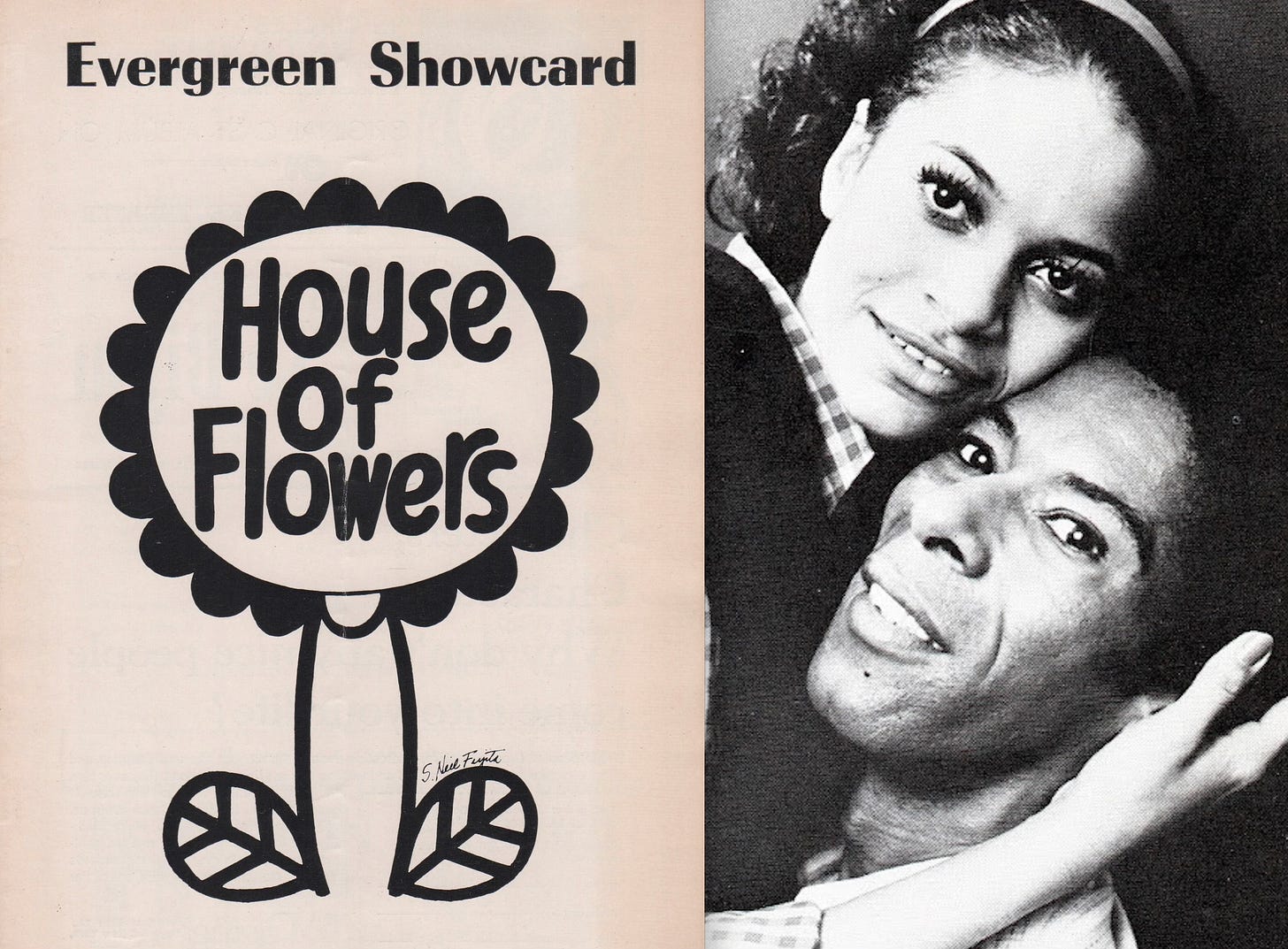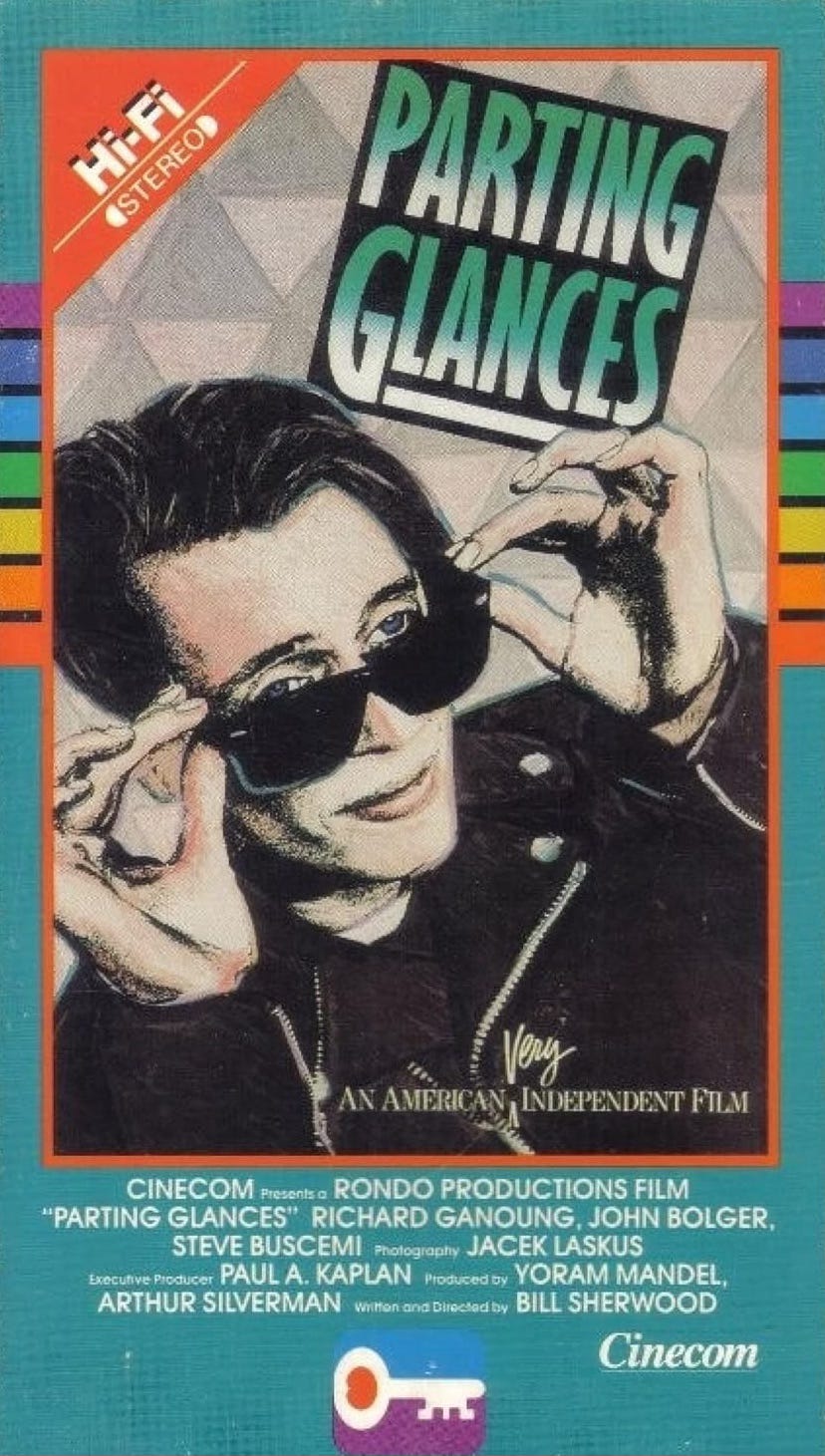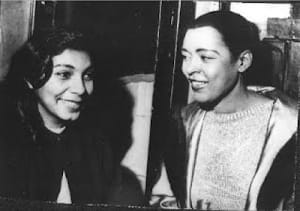I Caught Her In: Yolande Bavan Remembers 'Parting Glances'
The legendary jazz singer played enigmatic Betty in the 1986 AIDS-themed queer classic, and wound up uttering some of the film's most indelible lines
September 8, 2025
There were two reasons why I attended the University of Chicago — one, the University of Michigan unexpectedly put me on the wait list, and two, when I visited the U of C campus, I spotted a prominently displayed flyer for the school’s gay students’ union.
Both reasons were ridiculous. It was a phenomenally challenging school I should have been scared and grateful accepted me, but I was antsy to leave home and be gay; that didn’t feel as possible in Michigan, even in Ann Arbor.
I vividly remember nervously arriving one evening in 1987 for a gay-club screening (on a TV, via a VHS cassette) of Parting Glances in a small room in a darkened building on the Quad. I barely made eye contact with the people around me, but I stared into the screen with eyes wide open, drinking in writer-director Bill Sherwood’s film. While the quintessentially New York movie was hardly the charming confection that fellow Big Apple travelogue Desperately Seeking Susan was — at its center was a crumbling relationship and the specter of AIDS — Parting Glances nevertheless helped seduce me into becoming a future Manhattanite.
I longed to be in a city with snarky gay MTV aspirants who worked on New Wave songs under framed Keith Haring originals (Steve Buscemi), horny lovers who jogged in Riverside Park (Richard Ganoung and John Bolger), art-world divas who threw parties in never-ending SoHo lofts (Kathy Kinney), insouciant twinks who cruised for phone numbers while selling the latest vinyl sensations (Adam Nathan) and cosmopolitan couples who offered world-weary advice while cheating on each other (Patrick Tull and Yolande Bavan).
Lucky me, I was able to move to NYC in 1992, and for the past 20 of my 33 years here, while my life has not quite risen to the level of cinema, I have been aware that one of my real-life neighbors is Ms. Bavan, who in Parting Glances plays airy, sophisticated Betty. In her own real life, Bavan is an iconic jazz singer with Lambert, Hendricks & Bavan in the ‘60s, and an accomplished stage actor, making her every bit as cool as the character the played.
Parting Glances, described by its maker as his “love letter to gay culture,” is much more than an NYC postcard, it’s a document of metropolitan life in the ‘80s, and specifically of how gay men navigated the new catastrophe that was AIDS — including with dread, finger-pointing, acceptance and even humor. One of the first films to tackle the taboo subject, Parting Glances impossibly addresses AIDS as adroitly as it handles its central love triangle, in which a couple is on the verge of separation due to career and boredom, with a magnetic best friend the complicating factor.
Because I’ve never gotten over the movie and how profound it is, I finally took the initiative the last time I saw Ms. Bavan on my block to tell her how much the film meant to me. Her pleasure at being identified led to this later conversation between myself and one of the stars of one of the best queer films ever made.
Of the film’s status as an early AIDS narrative feature, Bavan told me, “One of my close friends [Robert Jackson] was one of the first people to pass from having AIDS. He was an actor, and we had done two shows together, one off-Broadway, and we had done a musical, House of Flowers.”
She went on, “He played the lead, the young guy, and I played the young woman. It was the most gorgeous music that can possibly be written, by Harold Arlen. When he was dying at St. Vincent's Hospital, I went to visit him, and I couldn't believe that he was the one that played opposite me as this young, handsome guy. And I didn't know what the hell it was.”

Her voice breaking, she recalled, “Every nurse that I asked, they would just walk right past me, no ‘I'm sorry,’ because I don't think they knew the depths of it and the viciousness of it. Viciousness from people who were criticizing and stigmatizing and all of that, and the viciousness of the ravagement of the body. They wouldn’t answer my questions. It was too new.”








